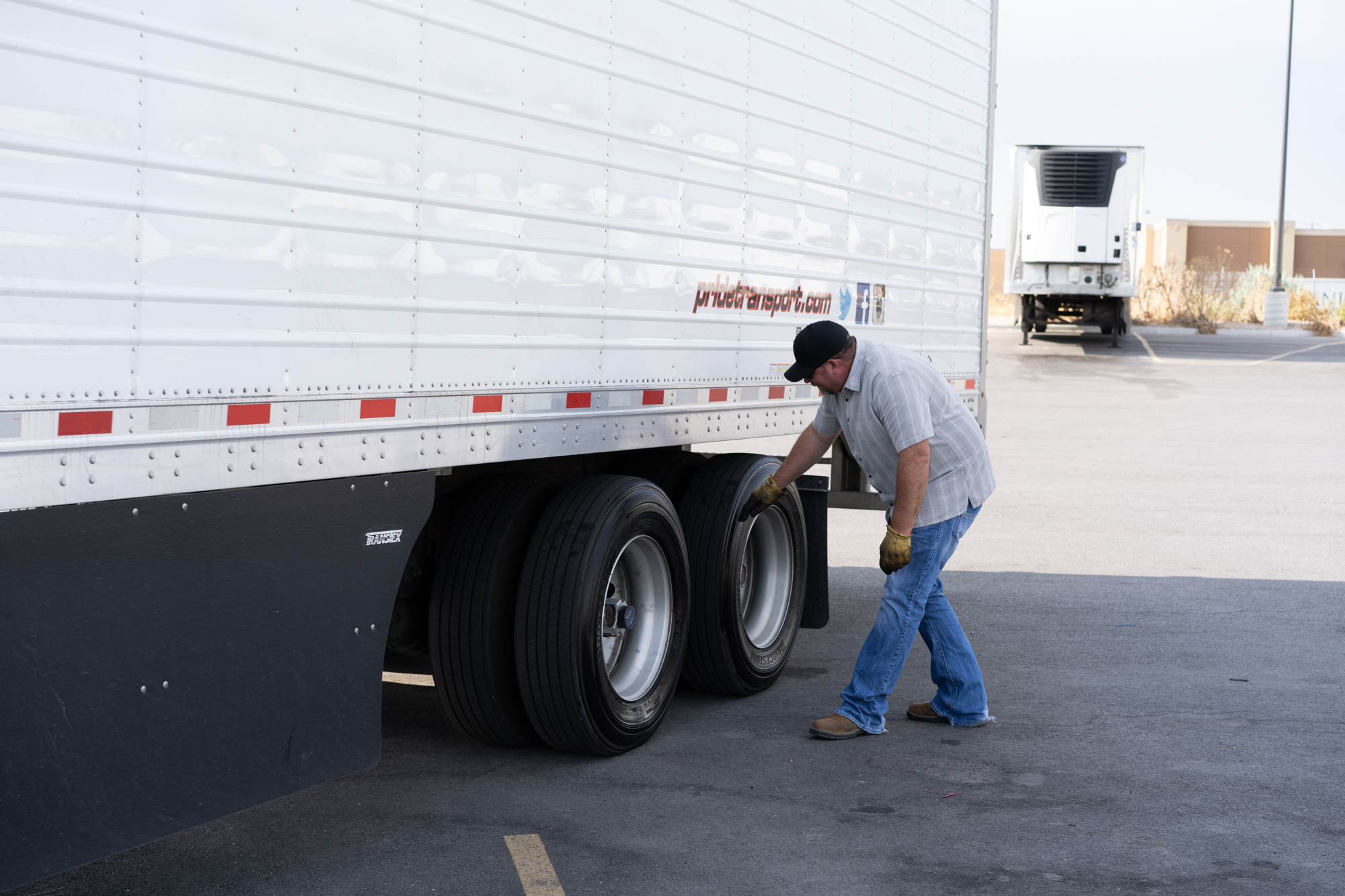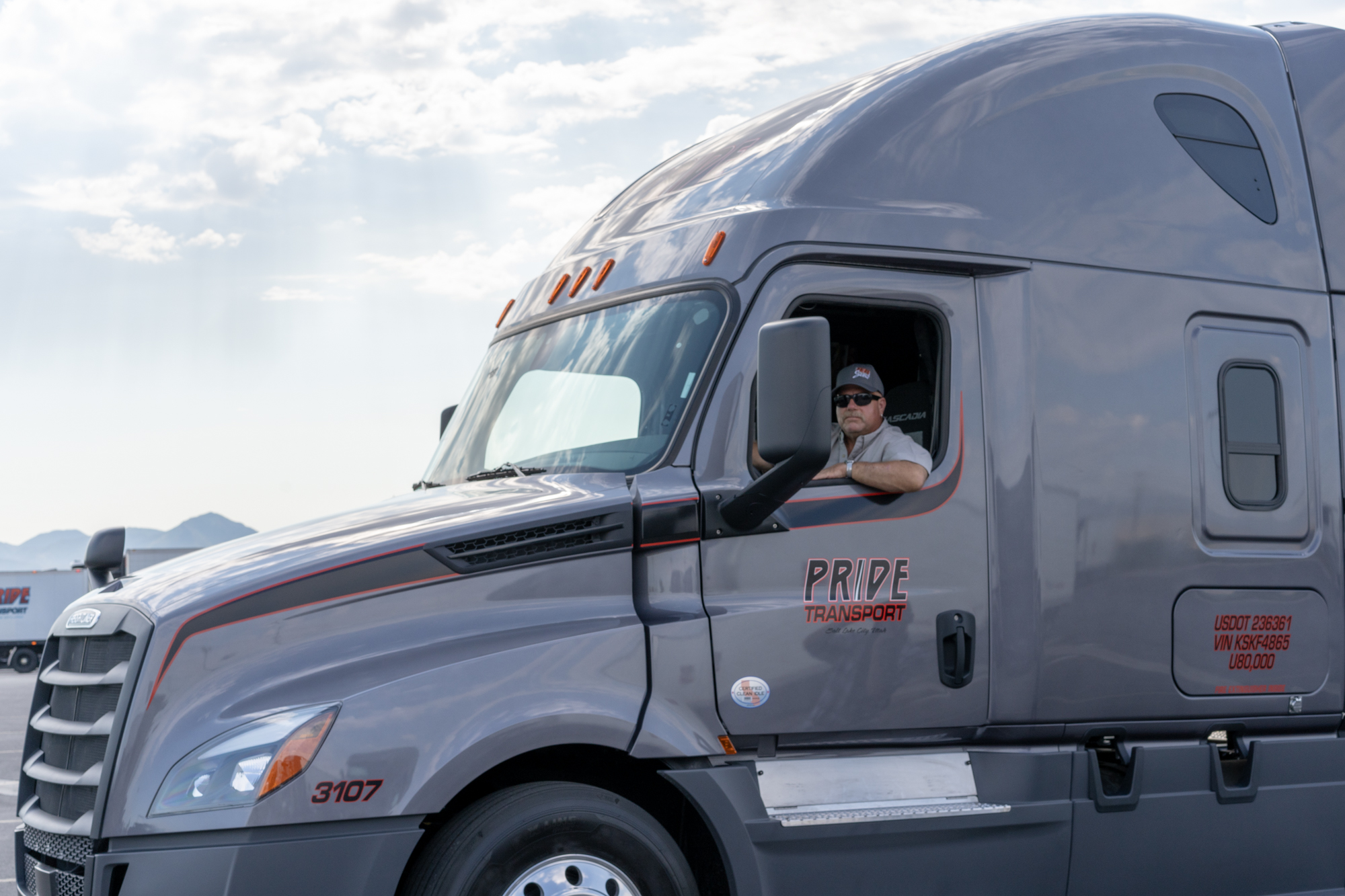by Pride Transport | Apr 17, 2025
For truck drivers, a Commercial Driver’s License (CDL) is a key that unlocks career opportunities in the industry. Whether you’re a new driver or a seasoned professional, it’s essential to understand what can lead to a suspension or revocation of your CDL. Violating regulations, committing traffic offenses, or failing to maintain compliance with federal and state laws can all lead to severe consequences.
This blog will explore the common reasons a driver may lose their CDL, the impacts it can have on their career, and the steps they can take to avoid these issues.
Common Reasons for CDL Suspensions
Losing your CDL is a serious matter that can have a long-lasting impact on your career. While some violations may result in temporary suspension, others may lead to a permanent retraction. Knowing the different infractions that can lead to those consequences will help you avoid costly mistakes and ensure that you remain in good standing as a professional driver.
Serious Traffic Violations
One of the most common reasons drivers face CDL suspension is for serious traffic violations. Commercial drivers are held to higher standards than regular motorists due to the size and weight of the vehicles they operate. Even a small violation can be more dangerous when driving a large truck. Here are a few traffic violations that can lead to CDL suspension:
- Excessive Speeding: Speeding over 15 mph above the speed limit is considered a major infraction. This includes highways or city streets.
- Reckless Driving: Reckless driving, which can involve dangerous maneuvers such as tailgating, weaving between lanes, or running red lights, is also a serious violation.
- Tailgating: Following too closely behind another vehicle can lead to rear-end collisions, especially for heavy trucks. Tailgating increases the risk of accidents and reflects poorly on a driver’s professionalism.
Accumulating Multiple Violations
If a driver accumulates too many serious traffic violations, especially within a three-year period, they can face suspension of their CDL. Multiple infringements indicate a pattern of unsafe driving and can lead to an immediate suspension, stopping a driver’s ability to work.
Major Offenses
Some violations are so severe that they can lead to immediate revocation of a CDL. These offenses typically involve criminal activity or serious safety risks:
- Driving Under the Influence (DUI) or Driving While Intoxicated (DWI): Driving a commercial vehicle while under the influence of alcohol or drugs is a serious offense. Even a first-time offense can result in the immediate revocation of your CDL.
- Using a Vehicle to Commit a Felony: If a driver is caught using a commercial vehicle in the commission of a felony, their CDL will be removed immediately.
- Leaving the Scene of an Accident: If a driver is involved in an accident and leaves the scene without providing assistance or exchanging information, this can lead to severe penalties, including the permanent loss of a CDL.
To avoid major offenses, always ensure that you are sober and alert before driving. Avoid distractions, plan your route carefully, and be mindful of other road users. A single mistake can have career-ending, and possibly even life-or-death consequences. Never leave the scene of an accident, regardless of the circumstances.

Violating Hours of Service (HOS) Regulations
The Hours of Service (HOS) regulations are designed to prevent fatigue-related accidents by ensuring that truck drivers get the proper amount of rest. Violating these regulations can result in fines, penalties, and even CDL suspension.
Common violations include:
- Falsifying Logbooks: Falsifying driving logs to make it appear as though a driver has been resting when they haven’t can result in serious consequences. This is considered a serious violation under DOT compliance rules.
- Failing to Use an Electronic Logging Device (ELD) Properly: Under federal regulations, commercial drivers are required to use ELDs to record their hours of service. Failing to use an ELD or using it incorrectly can result in a penalty or CDL disqualification.
To remain compliant, use reliable ELD software and ensure it’s properly installed in your vehicle. Plan your breaks efficiently to avoid violations and stay within the legal driving limits. Always log your hours accurately and take breaks when necessary to avoid fatigue-related accidents.
Disqualifying Violations at Railroad Crossings
Truck drivers must adhere to specific rules when crossing railroad tracks to prevent catastrophic accidents.
Common violations at railroad crossings include:
- Failing to Stop at a Railroad Crossing When Required: Some commercial vehicles are required to stop at railroad crossings. Failing to stop can result in fines, penalties, and the possibility of suspension.
- Trying to Cross without Adequate Clearance: A truck driver should never attempt to cross railroad tracks if they are unsure whether there is enough space on the other side to clear the crossing safely. This can result in severe penalties if the violation is discovered or there’s an accident.
Always approach railroad crossings with caution. Obey the signage, stop when required, and ensure that there is enough space for your vehicle to cross safely. Being aware of the surroundings and slowing down will reduce the risk of violations.
Traffic Violations in Personal Vehicles
It’s important to understand that traffic violations in your personal vehicle can also affect your CDL. For instance, a DUI conviction in your personal vehicle can lead to the suspension or revocation of your commercial driver’s license, even if it happened off the job. The DOT requires drivers to maintain good standing both on and off the road.
Medical Disqualifications
Maintaining medical fitness is essential for all truck drivers. Commercial drivers must maintain a valid medical examiner’s certificate to ensure they are fit to drive. Medical conditions such as poor vision, untreated sleep apnea, or other serious health issues can lead to disqualification from driving.
Make sure to undergo regular checkups and keep your medical certifications up to date. If you have any health issues, especially conditions that affect your ability to drive safely, consult a doctor and address the issue before it becomes a disqualifying condition.
Other Causes for Suspension or Revocation
Other infractions that can lead to suspension or revocation of a CDL include:
- Violating Out-of-Service Orders: Operating a vehicle that has been placed out of service by an inspector can result in suspension.
- Operating Without Proper Endorsements: Failing to meet the necessary qualifications or endorsements to operate certain types of vehicles or transport hazardous materials can lead to CDL disqualification.
Consequences of Losing Your CDL
Losing your CDL can have a dramatic impact on your career. Without a CDL, you cannot legally operate a commercial vehicle, meaning you would be unable to work as a truck driver. This loss can lead to:
- Financial Burden: Legal penalties, fines, and the loss of income can be devastating.
- Damaged Reputation: A suspended or revoked CDL can tarnish your professional reputation, making it difficult to find work in the future.
Steps to Reinstate a CDL After Suspension or Revocation
If your CDL has been suspended or revoked, there are several steps you can take to regain it.
Addressing the Cause of Suspension
To reinstate your CDL, it’s important to address the underlying cause of your suspension. Whether it’s paying fines, completing a mandated course, or undergoing treatment for substance abuse, you will need to comply with all requirements before applying for reinstatement.
Retaking Required Tests
If your suspension or revocation was due to violations related to your driving skills or knowledge, you may need to retake the CDL knowledge and skills tests before your license can be reinstated. Depending on the nature of your disqualification, updated medical certifications might also be required.
Staying Compliant and Safe
The best way to avoid losing your CDL is to practice safe driving habits and stay compliant with regulations. Here are a few tips:
- Defensive Driving: Always be alert and prepared for any situation on the road. Avoid distractions, drive at safe speeds, and be aware of road conditions.
- Obey Traffic Laws: Follow traffic laws at all times, both on the job and in your personal vehicle.
- Use Compliance Tools: Utilize tools like compliance apps, checklists, and training programs to ensure that you're always following the rules.
- Stay Updated: Keep up with federal and state trucking laws to ensure you're in compliance with all regulations.
- Maintain Proper Documentation: Ensure that your medical certifications, logbooks, and vehicle endorsements are up to date. Keeping a well-organized system for your paperwork can help prevent accidental lapses in compliance.
Losing a CDL can have serious consequences, affecting your livelihood and future opportunities in the industry. By understanding the common causes of suspension or revocation, you can take proactive steps to protect your career. Staying informed, following safety protocols, and adhering to federal and state guidelines are key to maintaining a clean driving record. By keeping your CDL in good standing, you can help ensure a successful future in trucking.
Start Your Career with Pride Transport
At Pride Transport, we understand the importance of maintaining a clean record and staying compliant with all regulations. We’re committed to providing our drivers with the tools and support they need to succeed in the trucking industry. If you’re ready to join a company that prioritizes safety and career growth, visit our careers page today.
